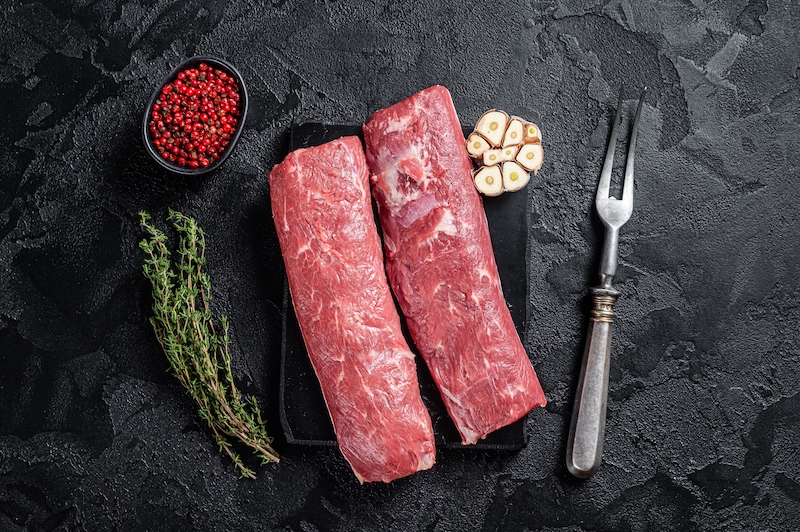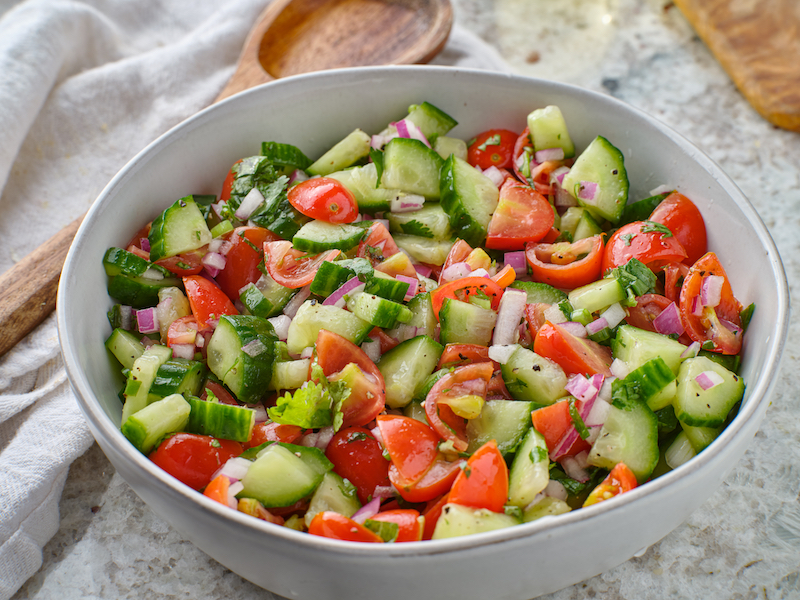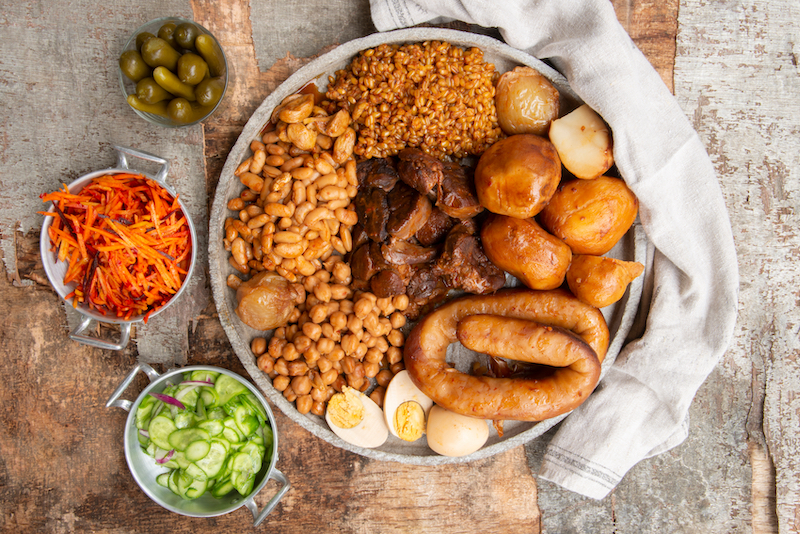Kosher meat is not just a type of meat, but the result of a series of practices and laws dictated by the Jewish religion. In these pages, we will explore what makes meat kosher, how it is slaughtered, as well as identifying which animals are considered kosher and which derived products are permitted by the Jewish diet.
What is Kosher Meat?
Kosher meat is part of the Jewish dietary laws known as kashrut, regulated by the Jewish religious law, the Halakhah. These rules determine which types of meat are allowed and how they must be prepared.
The term “kosher” originates from Hebrew and means “suitable” or “appropriate,” indicating that the food is fit for consumption by observant Jews. Following a kosher diet involves not just selecting meat but extends to all stages of food preparation.
For a food to be considered kosher, it must adhere to a set of principles, which include the exclusive use of certain animals, a particular method of slaughter, and the observance of hygienic and spiritual standards.
These regulations are very detailed and cover every stage of the food production and preparation process, including meat.
How Kosher Meat is Slaughtered
Kosher slaughter, or shechita, is a fundamental process to ensure that the meat is considered kosher. This involves a series of strict rules aimed at ensuring that the animal suffers as little as possible, thus maintaining the spiritual purity of the consumed food.
The task of slaughter is assigned to the shochet, who must have extensive knowledge of the shechita rules.
The Stages of Kosher Meat Slaughter
During shechita, the animal is slaughtered with a clean cut to the throat, which must be swift to minimize suffering. In the Jewish religion, it is crucial that the animal is not frightened or stressed before the slaughter, as this could invalidate the meat’s kosher status.
After slaughter, the meat is thoroughly examined to ensure that the animal had no diseases or abnormalities that would render it non-kosher.
Subsequently, the blood must be completely removed from the meat through a salting process, as the consumption of blood is strictly forbidden by Jewish laws.
Which Animals are Kosher?
Not all animals are considered kosher. To be kosher, an animal must ruminate and have cloven hooves. Ruminants with cloven hooves, such as cattle, goats, and sheep, are suitable for kosher consumption. Animals like the pig, which do not meet these criteria, are not kosher.
Regarding birds, specific norms also apply. Chickens, geese, turkeys, and pigeons are considered kosher, but birds of prey and many predatory birds are not. As for fish, only those with fins and scales can be eaten. Thus, shellfish such as lobsters and shrimp are not kosher.
All animal-derived products, such as milk and eggs, must come from kosher animals. For instance, milk must be extracted from a kosher cow, while eggs must come from kosher poultry and should not contain blood.
What are Kosher Products?
In addition to meat, many other foods can be considered kosher if they comply with the rules of kashrut. Dairy products are kosher only if they come from kosher animals and are not mixed with meat.
This separation is crucial in adhering to kosher laws, which prohibit mixing meat and dairy products, not just during preparation but also during consumption. There are even separate kosher kitchens for meat and dairy, including different utensils, pots, and dishes.
Even products like bread, cereals, fruits, and vegetables are generally kosher, but they must be prepared in environments that follow kashrut rules. Foods must be free from contamination with non-kosher ingredients and comply with strict preparation standards. For instance, wine, to be kosher, must be produced by observant Jews and follow certain practices in its preparation.
Today, many industrial and packaged food products are labeled as kosher thanks to the supervision of organizations that ensure every stage of the production process adheres to the norms of the Jewish diet.
Differences Between Kosher and Halal Meat
Both kosher and halal meat adhere to religious regulations, from Judaism and Islam, respectively. While they share some similarities, there are also many significant differences. Both require a ritual slaughter of the animal, but the details of the process and the associated prayers vary.
For kosher meat, the slaughter must be performed by a shochet, a trained individual who executes the cut with an extremely sharp knife to minimize the animal’s suffering.
The Jewish method of slaughter is known as “shechita.” Moreover, kosher meat must be thoroughly inspected to ensure that the animal does not present diseases or defects.
Halal meat follows different rules, specific to Islamic law. The animal must face Mecca, and the slaughter must be accompanied by the recitation of Allah’s name. Halal meat does not require a specialized figure like the shochet, and the process can be performed by any adult Muslim respecting the requirements of the Sharia.
Why Choose Kosher Meat in Our Diet
Many choose to consume kosher meat not only for religious reasons but also for reasons of health and ethics. The shechita process ensures that the animal is treated with respect and is killed in a way that minimizes pain.
Moreover, the inspection process and salting to remove blood ensure that the meat is of high quality and free of impurities. This method offers a greater assurance of product quality and the hygienic processes adopted.
Finally, consuming kosher food is also a way to adhere to a millennial tradition that links diet to a spiritual dimension and respect for divine rules. The kosher diet is not just about what is eaten, but how it is eaten and the spiritual meaning behind every meal.























